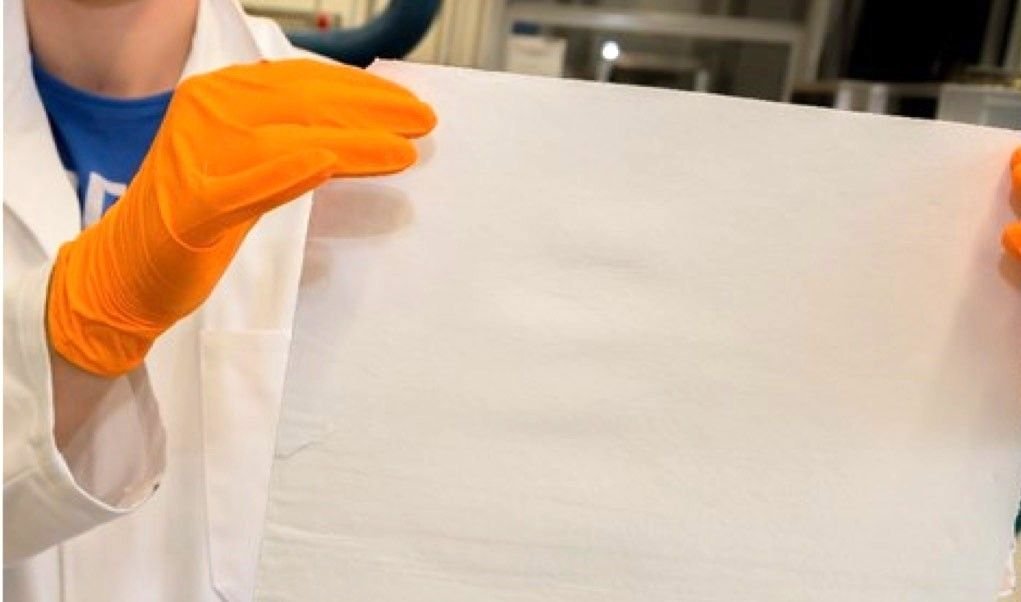Swoxid proposes a reusable antiviral mask
31.03.2020EPFL-spin-off Swoxid developed photoactive and nanoporous ceramic filters that may be sterilized upon UV-lamp illumination multiple times. With these filters face masks could be reused up to 1000-times. Swoxid is now looking for partners to accelerate the industrial production efforts to combat the CoronaVirus outbreak and to end the threat of face mask shortages.

Each month, it is estimated that about 89 million medical masks, 76 million examination gloves, and 1.6 million goggles will be required globally for health care workers to properly respond to the outbreak. In the same time, we see an increasing number of countries putting export bans on certain medical supply such as face masks in place. Public health officials are warning that these restrictive trade measures may put poorer nations more vulnerable to cope with this pandemic.
Swoxid, a pre-launched Swiss-based clean-tech start-up, anchored at the Laboratory of Physics of Complex Matter at EPFL believes their advanced filtration technology could help combat the spread of coronavirus. They have recently fabricated the first prototypes of a reusable antiviral mask.
Their innovative filter combines three important functions in one: small pore size to filter out viruses; anti-viral gold-silver-copper particles; and it is sterilized by exposure to UV light, enabling reusability. The pores of their patented ceramic filter are smaller than 100 nm. The size of the COVID-19 corona virus is somewhat larger, 120 nm, and would become stacked within the pores of the filter. Recently, the researchers have shown that their filter illuminated by UV for couple of minutes, by creating reactive oxygen species, kills all living microorganisms.
It is estimated, that the Swoxid light-sterilizable mask may be reused more than 1000-times. The proposition of Swoxid clean-tech start-up not only addresses an impending mask shortage crisis, but would reduce the environmental and public health issues related to the millions of masks discarded daily worldwide outside of medical environment, where infectious and hazardous medical waste is properly treated and disposed.
The Swoxid air filters are not commercialized yet, but the special patented aerogel raw material which the filters are composed of can be produced in scalable quantities. Only in laboratory conditions, today it could allow a filter production capacity about 100-200 m2/week, enough to fabricate 40’000-80’000 reusable masks monthly. If 3-times sterilized and reused daily for a month duration, this would be enough to replace 120’000-240’000 disposable masks monthly.
The whole team will endeavor to put these reusable masks on the market in the coming months. The Swoxid-team is now seeking research and industrial partners, foundations willing to help and investors active in health care to speed-up the R&D and commercialization efforts of their reusable anti-viral mask.
(www.startupticker.ch)